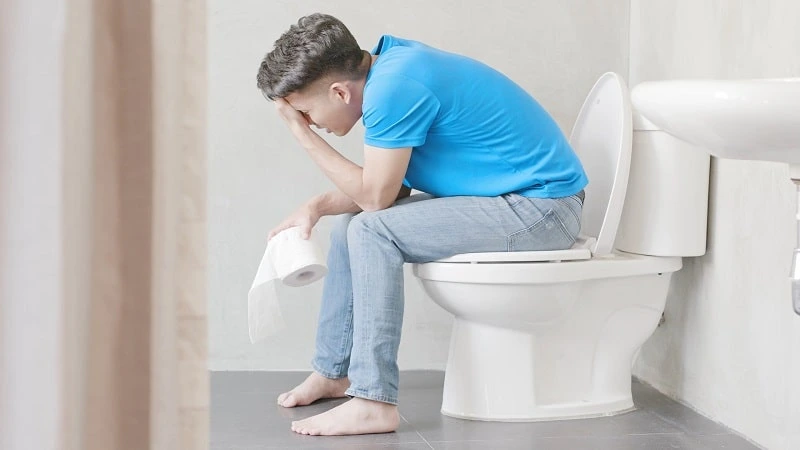Understanding the link between diabetes and changes in poop smell is crucial for individuals living with diabetes and their caregivers. Diabetes is a chronic condition that affects how the body processes glucose, leading to high blood sugar levels. While most people are aware of the common symptoms associated with diabetes, such as increased thirst and frequent urination, changes in poop odor often go unnoticed or are attributed to other factors. In this article, we will explore what does diabetic poop smell like.
However, recognizing the specific smell of diabetic poop can offer valuable insights into a person’s blood sugar control and overall health. By paying attention to these subtler indicators, individuals with diabetes can take proactive steps to manage their condition more effectively and seek timely medical guidance when necessary.
Diabetes and Gastrointestinal Changes
Diabetes has notable effects on the digestive system, leading to various gastrointestinal changes.
Impact on Bowel Movements
- High blood glucose levels in diabetes can influence the frequency and consistency of bowel movements.
- It may result in more frequent or irregular bowel movements.
Read More: Pain in Lower Abdomen and Buttocks in Female
Diarrhea
- Some individuals with diabetes experience diarrhea due to nerve damage in the digestive tract.
- This condition is known as diabetic diarrhea and can contribute to changes in poop smell.
Constipation
- Diabetes can also cause constipation, making it difficult to pass stools regularly.
- Constipation can affect the poop smell due to prolonged stool retention in the intestines.

Gastroparesis
- Gastroparesis is a condition where the stomach takes longer to empty its contents.
- This delayed emptying can lead to changes in gut bacteria and may influence poop odor.
Impact of Diet
- Diabetic individuals may need to make dietary changes to manage blood sugar levels.
- Altering the diet can also impact gut health and consequently affect poop smell.
What does Diabetic Poop Smell Like?
The smell of diabetic poop can provide valuable insights into a person’s blood sugar control and overall health.
Role of Blood Sugar Levels
- High blood glucose levels can lead to changes in the composition of gut bacteria, affecting the poop smell.
- Uncontrolled diabetes may result in certain chemicals being excreted in the stool, contributing to the distinct odor.

Diet and Stool Odor
- The food a person consumes plays a significant role in the poop smell.
- Diabetic individuals may experience changes in stool odor based on their dietary choices.
Uncontrolled Diabetes Indicators
- An unpleasant or unusual poop smell can be an indication of uncontrolled diabetes.
- Diabetic individuals should pay attention to changes in poop odor as it may signal the need for better blood sugar management.
Recognizing Normal vs. Abnormal Stool Odor
Differentiating between normal and abnormal poop smell can be essential for diabetes management.
Characteristics of Normal Poop Smell
- Normal poop smell varies based on individual diet and gut microbiome.
- It is typically mild and not excessively foul.
Abnormal Odors
- Unusual, strong, or foul-smelling poop may indicate digestive issues or poorly managed diabetes.
- Any persistent change in poop odor should prompt further evaluation.
When to Seek Medical Advice
Timely medical attention is crucial for managing diabetes-related gastrointestinal changes.
Consulting Healthcare Providers
- Diabetic individuals should communicate openly with their healthcare providers about any digestive symptoms or changes in poop smell.
- Seeking medical advice helps identify and address potential issues promptly.
Complications of Uncontrolled Diabetes
- Neglecting changes in poop smell and uncontrolled diabetes can lead to complications, such as severe digestive problems and malnutrition.
Managing Diabetes and Digestive Health
Proactive management of diabetes and digestive health can positively impact poop smell and overall well-being.
Blood Sugar Control
- Consistently monitoring blood sugar levels and adhering to prescribed treatment can help manage diabetes effectively.
- Better blood sugar control may improve poop smell.
Diet and Hydration
- Following a balanced diet and staying hydrated can support healthy digestion and regular bowel movements.
- Adequate hydration can prevent constipation and promote a more regular poop smell.
Lifestyle Changes
- Incorporating regular physical activity and stress management techniques can aid in better digestion and overall gut health.
Factors Contributing to Diabetic Poop Smell
Several factors, besides blood sugar levels, can influence poop odor in individuals with diabetes.
Medications
- Some diabetes medications can affect digestion and alter poop smell.
- It’s essential to discuss any changes in poop odor with healthcare providers, as it may be related to medication.
Dehydration
- Dehydration can lead to concentrated urine and stool, which may have a stronger smell.
- Diabetic individuals should ensure adequate hydration to support regular bowel movements.
Infections
- Infections in the digestive tract can cause changes in poop smell.
- Diabetic individuals should be vigilant for any signs of infection and seek medical attention when necessary.
Conclusion
Understanding diabetic poop smell is crucial for individuals living with diabetes. Changes in poop odor can provide valuable insights into blood sugar control and overall health.
Diabetic individuals should pay attention to their poop smell and be aware of the characteristics of normal and abnormal stool odor.
Maintaining a balanced diet, staying hydrated, engaging in regular physical activity, and managing stress can positively impact poop smell and digestive health.
Proper blood sugar control is essential in managing diabetes and may also contribute to improved poop smell. If abnormal poop smell persists despite lifestyle adjustments, seeking medical advice is essential to identify and address underlying health issues.
Regular communication with healthcare providers and proactive diabetes management are key in ensuring optimal well-being.
FAQS
What does normal poop smell like?
Normal poop smell varies based on an individual’s diet and gut microbiome. It is typically mild and not excessively foul. The odor is influenced by the breakdown of food particles by gut bacteria.
How does diabetes affect poop smell?
Diabetes can impact poop smell due to high blood glucose levels. Uncontrolled diabetes may cause certain chemicals to be excreted in the stool, resulting in a distinct odor. It can also alter the composition of gut bacteria, leading to changes in poop smell.
What does sweet or fruity poop smell indicate in diabetes?
A sweet or fruity smell in the stool may indicate the presence of ketones, a byproduct of fat metabolism. This can occur in uncontrolled diabetes or during periods of fasting or severe illness.
Can certain foods affect poop smell in diabetes?
Yes, certain foods can influence poop smell. High-fat foods may lead to greasy or foul-smelling stools. Additionally, poorly digested carbohydrates can ferment in the gut, affecting poop odor.
Why is poop smell monitoring important for diabetics?
Monitoring poop smell can provide insights into blood sugar control and diabetes management. Changes in poop smell may indicate poorly controlled diabetes or digestive issues.
Is abnormal poop smell always a cause for concern in diabetes?
Abnormal poop smell may indicate underlying health issues or poorly managed diabetes. While it’s not always a cause for immediate concern, persistent changes warrant medical evaluation.
How can I improve poop smell in diabetes?
Improving poop smell in diabetes involves proper blood sugar control through diet, medication, and lifestyle adjustments. A balanced diet, regular physical activity, and stress management can positively impact poop odor.
When should I seek medical advice for changes in poop smell?
If abnormal poop smell persists despite dietary and lifestyle adjustments, it’s essential to seek medical advice. Additionally, if blood sugar levels remain consistently high, medical evaluation is necessary.
Can diabetes medications affect poop smell?
Some diabetes medications can impact digestion and bowel movements, which may influence poop smell. If you notice changes in poop odor after starting a new medication, consult your healthcare provider.
Medical References
- American Diabetes Association. (2019). Standards of Medical Care in Diabetes—2019 Abridged for Primary Care Providers. Clinical Diabetes, 37(1), 11-34.
- Ehrlich, S. F., Quesenberry, C. P., Van Den Eeden, S. K., Shan, J., Ferrara, A., & Hedderson, M. M. (2010). Low-fat, high-fiber diet and fecal incontinence: findings from the Women’s Health Initiative. American Journal of Gastroenterology, 105(4), 918-927.
- Malinen, E., Krogius-Kurikka, L., Lyra, A., Nikkila, J., Jaaskelainen, A., Rinttila, T., … & Palva, A. (2018). Association of symptoms with gastrointestinal microbiota in irritable bowel syndrome. World Journal of Gastroenterology, 24(34), 4532-4544.
- Peedikayil, F. C., Sreenivasan, P., & Narayanan, A. (2019). Effect of coconut oil in plaque-related gingivitis—a preliminary report. Nigerian Medical Journal, 60(5), 235.
- Santos, F. L., Esteves, S. S., da Costa Pereira, A., Yancy Jr, W. S., & Nunes, J. P. (2012). Systematic review and meta-analysis of clinical trials of the effects of low carbohydrate diets on cardiovascular risk factors. Obesity Reviews, 13(11), 1048-1066.
- Zhu, J., Liao, M., Yao, W., Yang, Y., Li, M., & Luo, L. (2019). Gut microbiota profiling reveals the relationship between specific microbiota and symptom severity in patients with irritable bowel syndrome. European Journal of Clinical Microbiology & Infectious Diseases, 38(3), 365-375.



